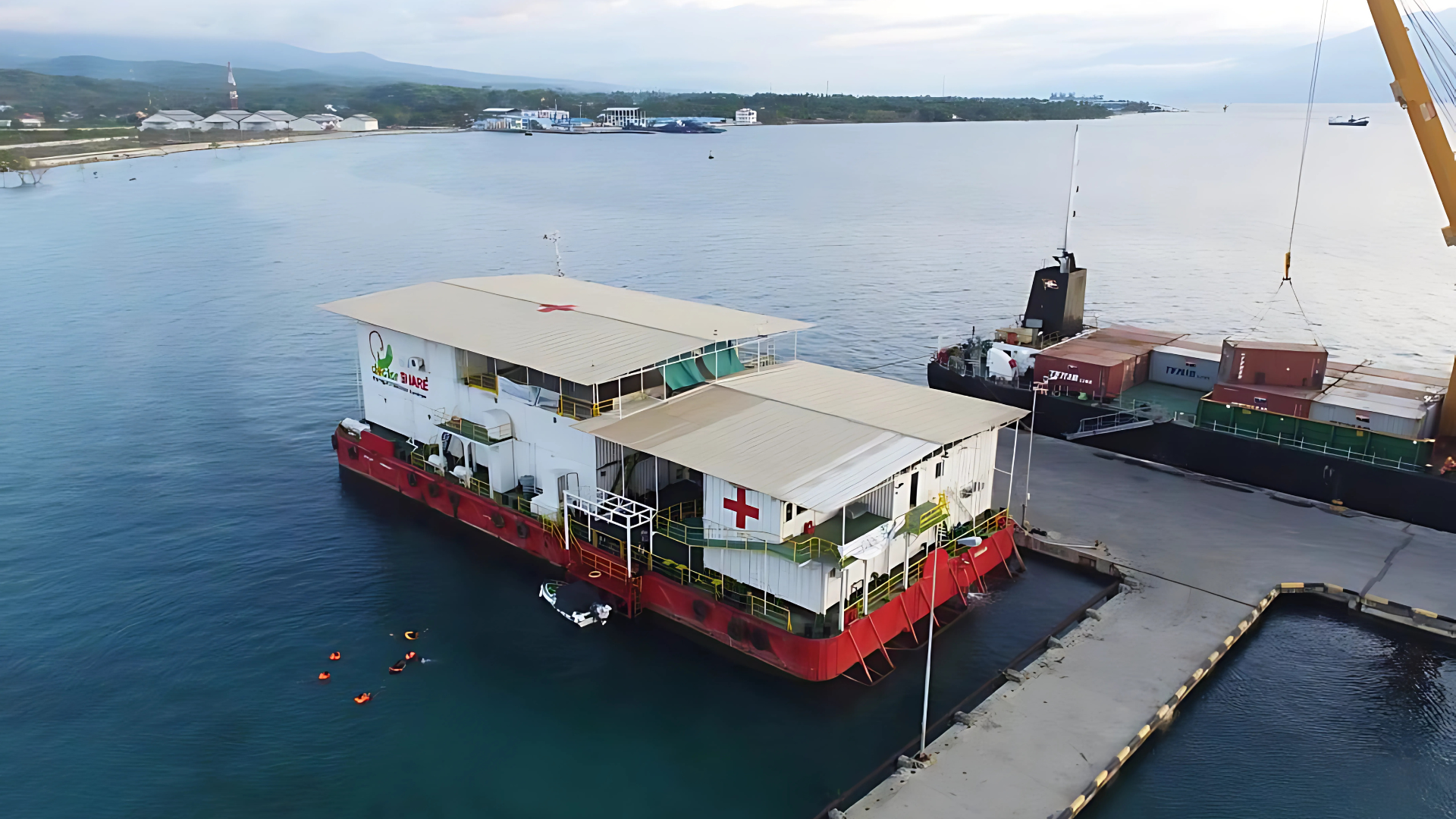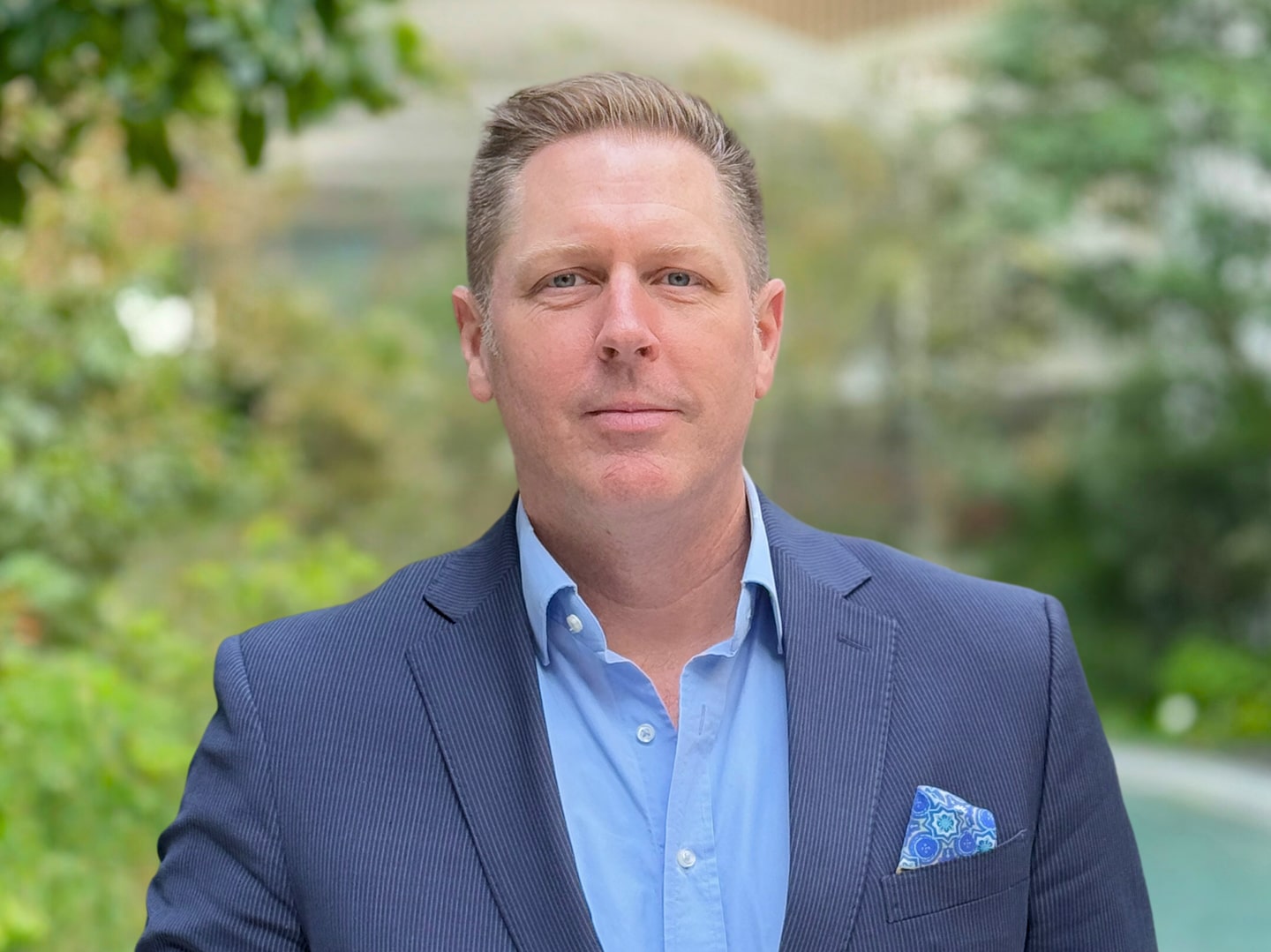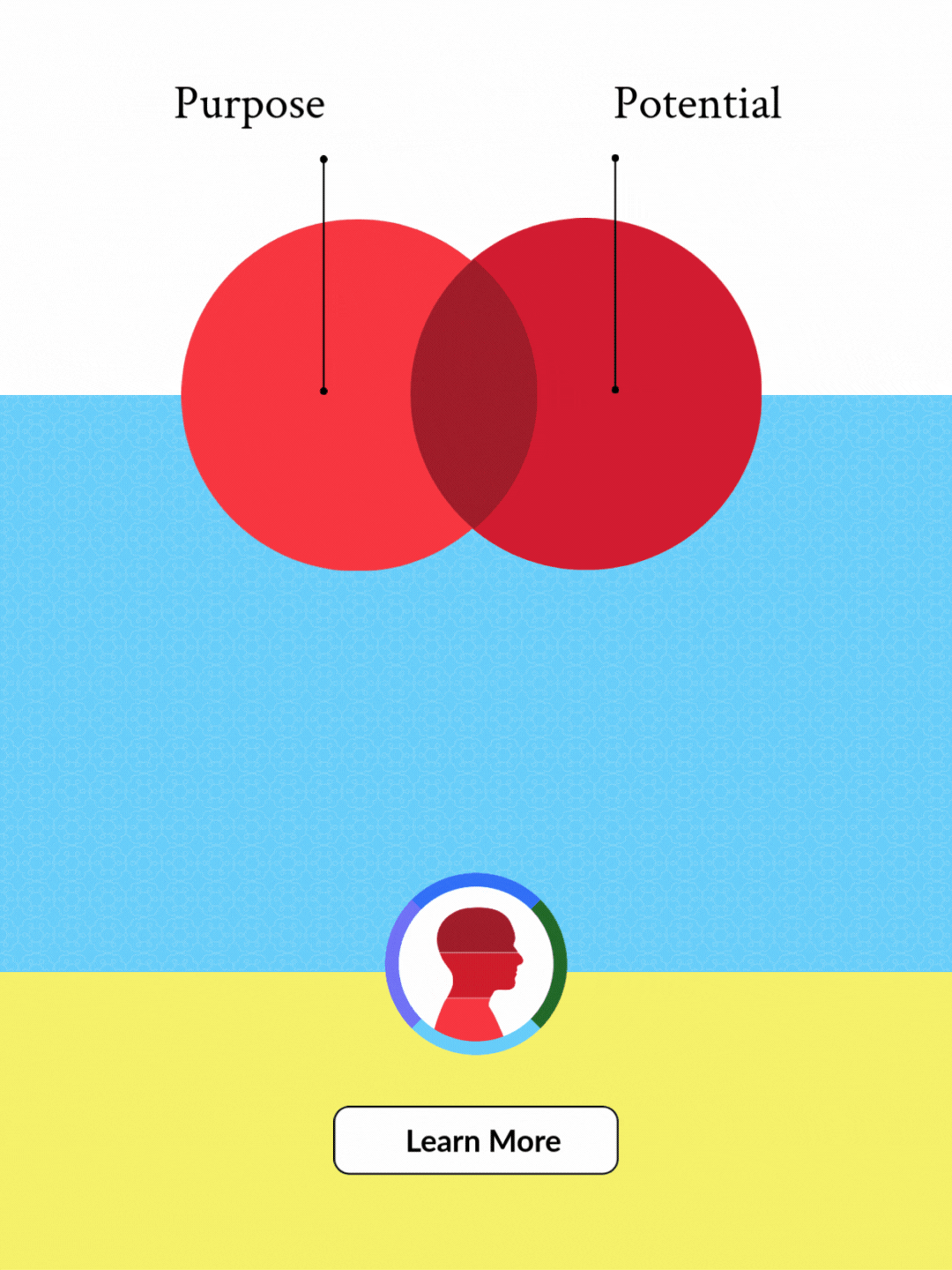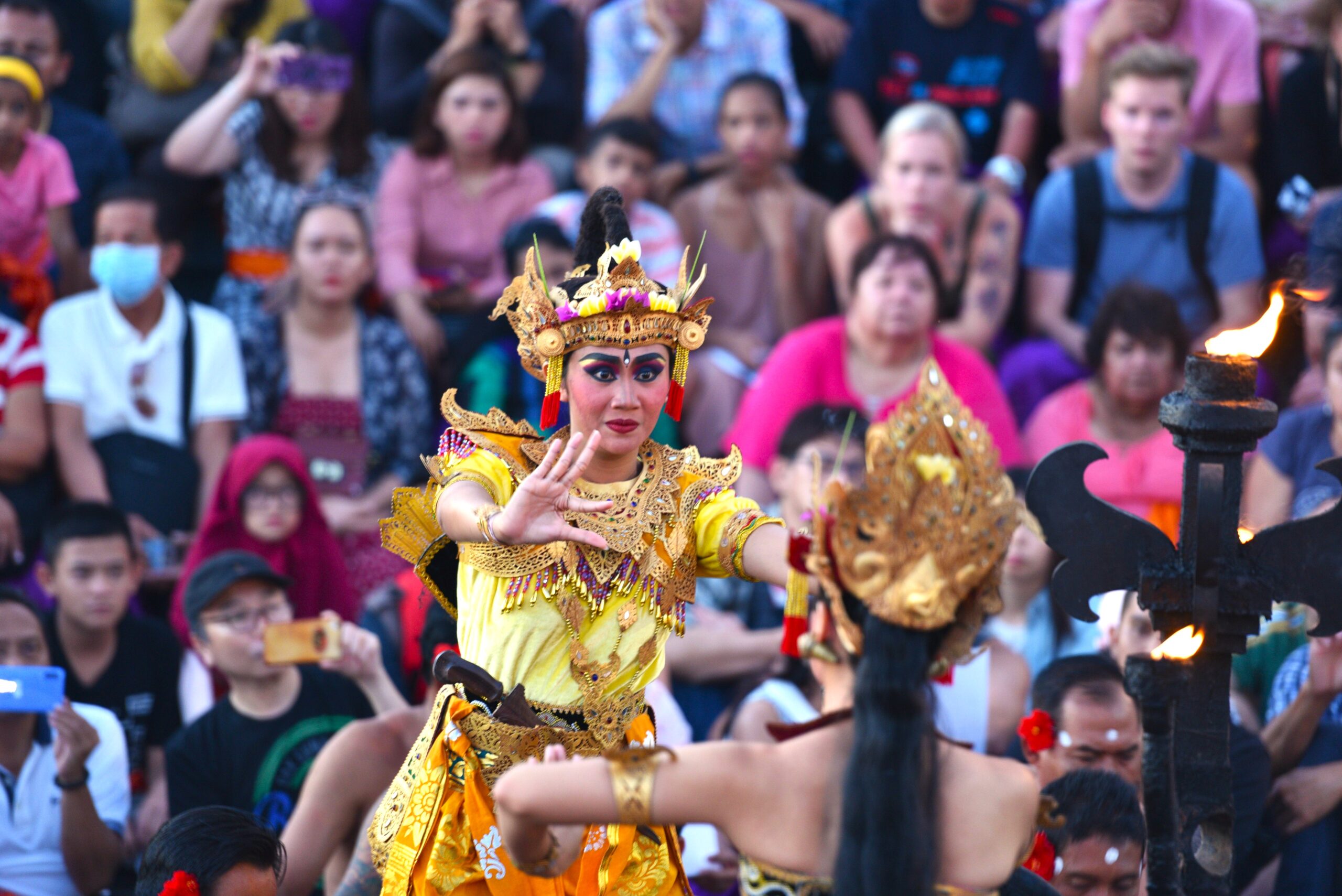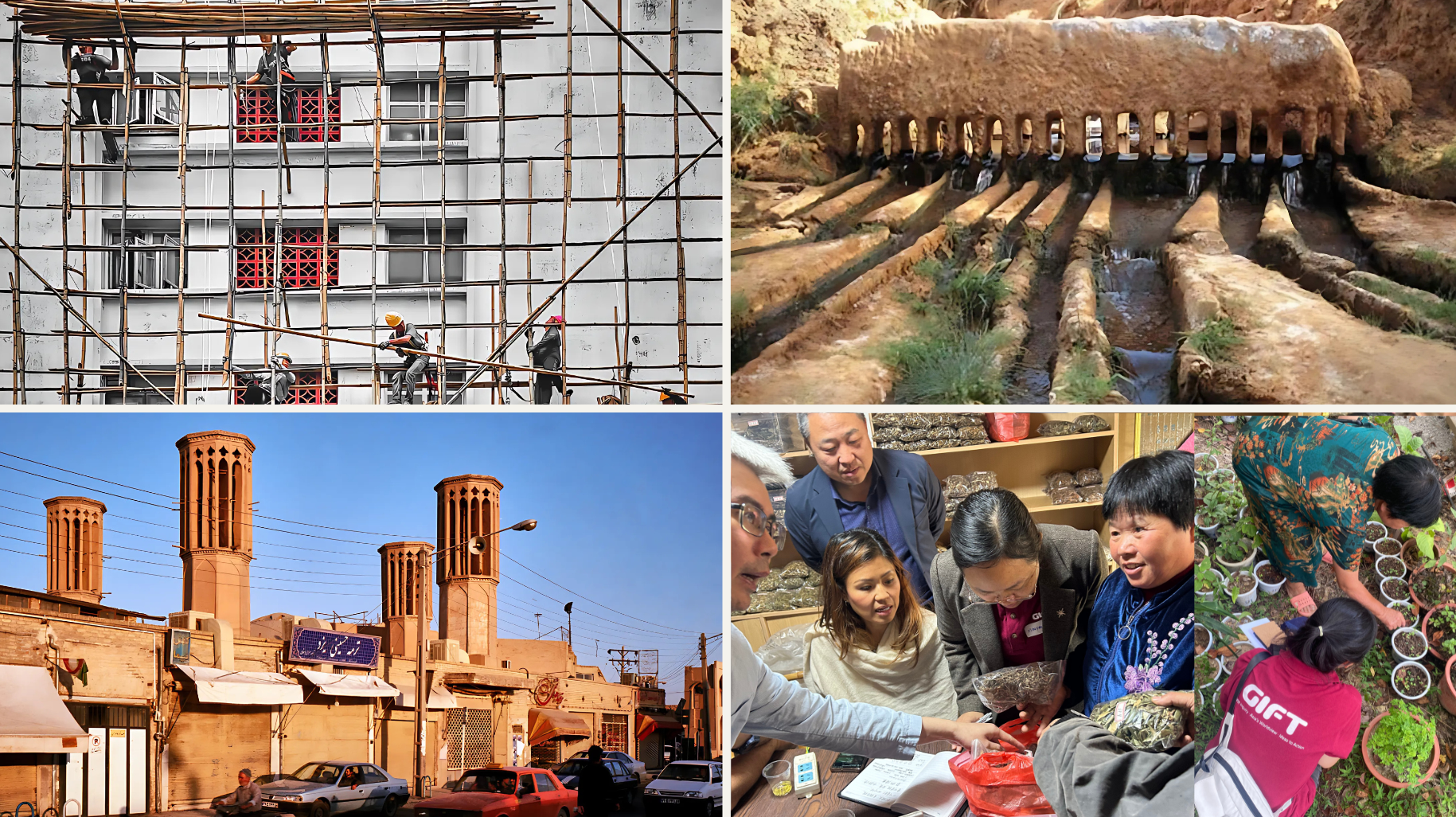Those who know Raja Ampat, the regency in West Papua, know it as one of the world’s best diving sites. What most do not know is that across its four main islands there is only one hospital, and the one that exists is “class D,” the lowest rating for medical facilities. The tourists who enjoy the natural wonders of Raja Ampat are largely unaware that those who serve their food, clean their rooms, and drive their boats are unable to get even basic medical treatment without traveling long distances.
Fortunately, there is an innovative solution to addressing Indonesia’s remote healthcare challenges: floating hospitals. Since 2009, local NGO doctorSHARE has built and operated medical facilities on boats and barges. These facilities are compact enough to reach small docks in far flung islands, while fully equipped with quality medical devices, certified doctors, and wide-ranging medicines. Shifting locations to serve new communities every few months provides a practical alternative to constructing traditional hospitals in districts with smaller populations, constrained budgets, and infrastructure gaps.
Our team at GIFT visited a hospital docked in Sorong, West Papua and met with doctors, crew, and local health authorities. The hospital is expected to bring 15 doctors and specialists to Misool, the largest island in Raja Ampat, where it will serve some 7,000 people who presently rely on just one doctor for the entire island. The floating hospital expects to see upwards of 200 patients per day and will berth in the island for 60 days, treating outpatient and inpatient needs, performing surgeries, and offering dental treatment, all provided for free. Services are funded by individual donors, corporate sponsors, and larger grants.
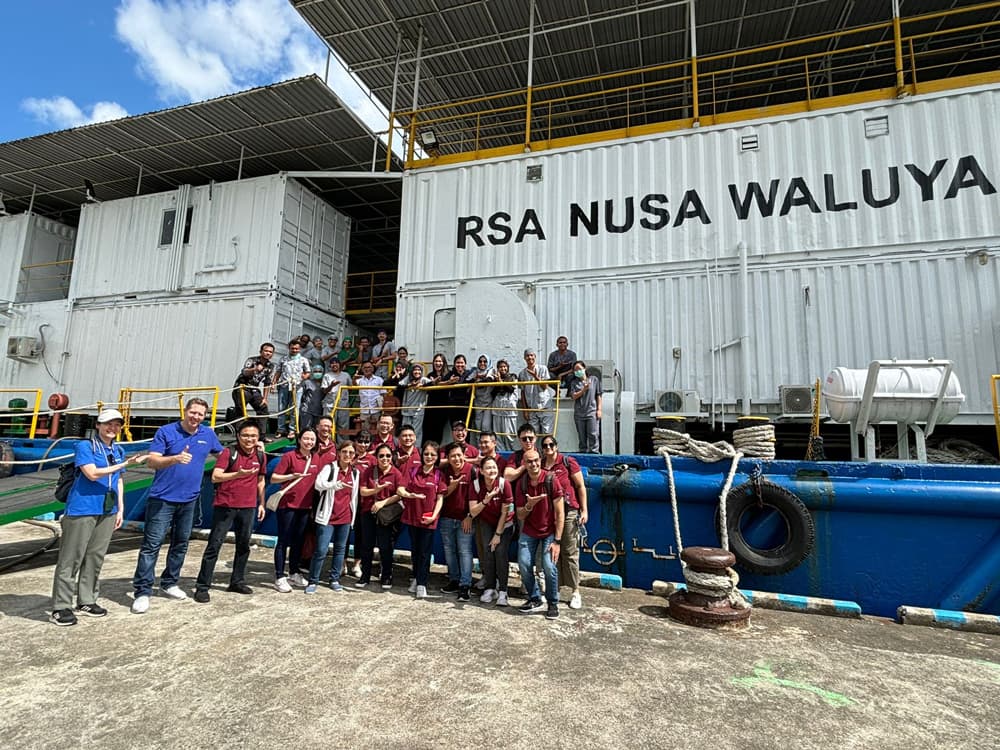
The value of floating hospitals goes beyond serving immediate medical needs. Building more floating hospitals can be a tool for building the nation. Healthcare is a public good that should be accessible to all. Until now, the people of Papua, and other regions of eastern Indonesia have been left behind. The lack of services is one of the factors that fuels discontent. Infrastructure remains poor, educational outcomes have lagged, and mineral wealth has been extracted but not been fairly redistributed. To be sure, there are difficult historical, political, and cultural issues to be reconciled. Yet, people need essential medical care. Floating hospitals allow them to receive it, even if it means a trip from the interior to the coastal areas which is anyway far shorter than they would do now for urgent care.
Nation building means forging a shared vision and a unity of national consciousness amongst diverse peoples. Universal access to healthcare is a worthy aspiration to rally around. The problem is most Indonesians who live in cities are unaware of the tragic situation in remote areas, especially the regions of eastern Indonesia and its more than 15 million people. It is not just foreign tourists who are blind to the reality of local conditions. doctorSHARE staff report surprised reactions from donors when they are told about the stark lack of medical services in provinces like Papua, Maluku, and Timor. Fundraising requires explaining the daily realities in rural villages to those whose urban experience diverges in almost unimaginable ways. Amongst the general population, few travel extensively. A family in Medan or Bandung would be unfamiliar with life in Yapen, Ambon and smaller districts.
With greater awareness, many would undoubtedly seek to help. Indonesians have ranked as the world’s most generous people for six years in a row according to the World Giving Index: surveys report the frequency of helping a stranger, donating to charity, and volunteering time for a cause. Some of this charity could go toward the IDR15.5 billion annual operating budget for the Nusa Waluya II floating hospital barge which would serve 29,000 patients annually.
The government should fund floating hospitals. If it cannot, certain enabling policies should be prioritised. Efforts could be coordinated through a Rural Healthcare Authority fostering the rapid expansion of service, to meet basic human rights, and as a tool for nation building. Raja Ampat is pioneering a pilot project to enable floating hospitals to claim for patient services from the national health insurance scheme. More resources should be deployed in registering rural patients and harmonising primary and secondary care benefits, which are prerequisites for this plan.
Recruiting, training, and deploying more doctors willing to work in remote locations are needed. The logistics of coordinating and transporting doctors, equipment and medicines is a key challenge. It is also where smart, entrepreneurial youth could apply themselves in innovating new technology enabled ventures, thinking beyond the modern trappings of gaming and shopping apps. Thus, education reform should focus on giving students a deeper understanding of the realities of the nation, across its diverse regions to stimulate domestic problem solving. Young people need to be guided beyond media and homogenous social networks that reinforce existing assumptions.
Papuans deserve equity in the wealth derived from their natural assets. Basic infrastructure like healthcare facilities is part of this. Foreign tourists diving in Raja Ampat should be taxed to help fund floating hospitals. Resort operators, as well as investors in resource companies, should be mandated to contribute, as they are economic beneficiaries. As a nation-building exercise, and in providing basic needs for their essential staff, companies would benefit too. Ultimately floating hospitals build societal resilience, through provision of regular medical care and thus improved productivity of the workforce, and reduced time away for illness. Their greater promise could be in fostering a shared vision for Indonesia as an inclusive, prosperous society.
Eric Stryson is Managing Director of the Global Institute For Tomorrow (GIFT) in Hong Kong. He possesses expertise in governance, business model innovation, leadership transformation, talent development, and sustainability. He coaches leaders from business, government, and civil society to critically examine their roles, look beyond conventional wisdom, deepen their understanding of global issues, and take ownership of their impact on their organisations and society at large.


